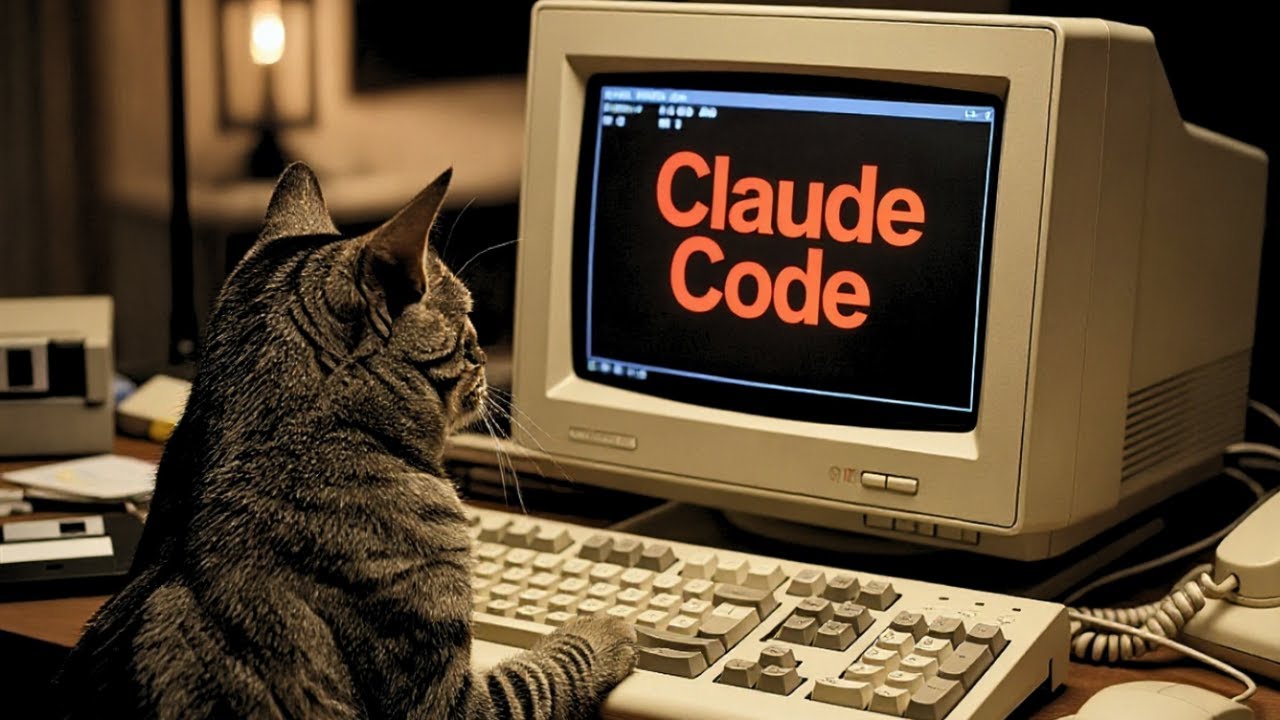The video provides an in-depth overview of Anthropic’s Claude Code, highlighting its agentic approach to codebase exploration, best practices like using cloud.md files and permission management, and advanced features such as subagents, plan mode, and integration with external tools to enhance AI-assisted software development. It also discusses community insights, ongoing updates, and future prospects, emphasizing Claude Code’s role in transforming coding workflows and managing complex projects through modular, collaborative AI agents.
The video centers around a detailed discussion and walkthrough of Anthropic’s Claude Code, an AI-powered coding assistant designed to enhance software development workflows. The presenter, Cal, shares his personal journey with Claude Code, highlighting how it transformed his coding approach by enabling rapid project development and efficient codebase exploration. Claude Code operates as an agent that interacts primarily through the terminal, using powerful tools and commands to understand and manipulate codebases without relying on traditional indexing methods. Instead, it performs agentic searches similar to how a human developer would explore unfamiliar code, making it particularly effective for onboarding and working within large or complex projects.
A significant portion of the video is dedicated to best practices for using Claude Code effectively. One key recommendation is the use of cloud.md files, which serve as a form of shared memory or instruction set that guides Claude’s behavior across sessions and among team members. These files can include project-specific guidelines, testing instructions, or style preferences, helping maintain consistency and improving the AI’s output relevance. Permission management is also emphasized, allowing users to control when Claude can execute potentially risky commands, thereby balancing automation with safety. The presenter also discusses the integration of various CLI tools and MCP (Model Control Protocol) servers to extend Claude’s capabilities, enabling it to interact with external systems like GitHub or Docker seamlessly.
The video explores advanced features such as plan mode and to-do lists, which help structure Claude’s workflow by encouraging it to outline tasks before execution and maintain a clear list of objectives. This approach supports test-driven development and incremental coding, which are crucial for maintaining code quality and managing complex projects. The presenter shares insights from the community about the practical challenges and benefits of these features, including the trade-offs between different AI models like Opus and Sonnet, and the use of screenshots and multimodal inputs to aid debugging and development. The discussion also touches on the potential of running multiple Claude instances (“clouds”) simultaneously to handle different aspects of a project or multiple projects in parallel.
A notable segment covers the use of subagents and hooks within Claude Code, which allow for modular task delegation and logging. The presenter experiments with instructing subagents to write logs of their actions to markdown files, facilitating better tracking and debugging of AI-driven workflows. This modular approach aligns with the “keep it simple” principle, aiming to manage complexity by breaking down tasks and maintaining clear communication between agents through shared files. The video also briefly introduces Google’s Gemini Deep Think model, highlighting its advanced reasoning capabilities and potential applications in tackling complex academic and scientific problems, though the presenter notes it may be more specialized than broadly practical for everyday coding tasks.
Towards the end, the presenter discusses ongoing developments and community feedback, including the rapid pace of updates to Claude Code and the importance of staying informed through official channels like GitHub. He also shares personal projects built using Claude Code and subagents, demonstrating practical applications such as event management apps and security validation tools. The video concludes with reflections on the evolving landscape of AI-assisted coding, the challenges of scaling and context management, and plans for future streams and giveaways to engage the community. Overall, the video provides a comprehensive overview of Claude Code’s capabilities, best practices, and the broader ecosystem of AI tools shaping modern software development.
